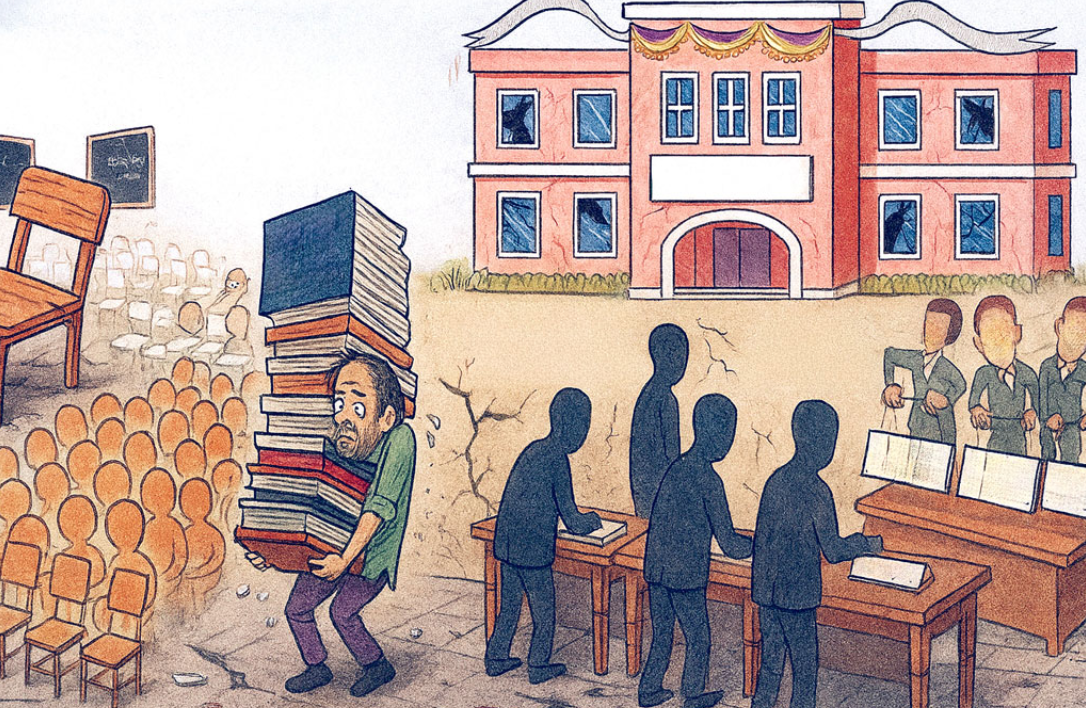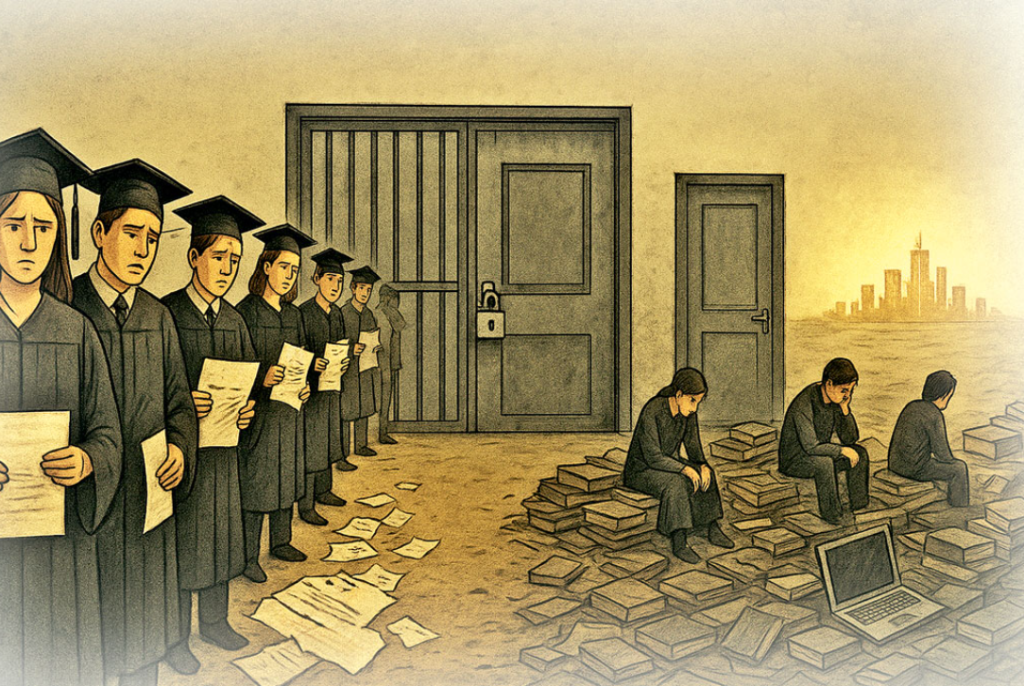Desk Report:
During the last government, many private colleges in the country were governmentized. However, since the order to become government was issued in 2018, a delicate situation has prevailed in the concerned colleges. Governmentization was done considering the facilities and welfare of students, teachers, and guardians. But in reality, the minimum educational environment does not seem to be present in the colleges that were recently made government. In terms of time, it is not at all short, seven years are going to pass from 2018 to 2025. All in all, the college-level education system is on the verge of collapse.
A ban was imposed on the recruitment of teachers in the last colleges that were made government in 2018. Since then, recruitment has been completely stopped. As a result, thousands of subject-based teacher posts have become vacant as they retire one by one in seven years (2018-25) as per the rules. Not only is recruitment in the colleges stopped, but no teachers are being given by the government. These colleges are now offering classes 11 and 12 at the higher secondary level, and first, second and third years (first, second, third and fourth years if an honours course is in operation) at the degree (pass) level. Many newly established government colleges, even at the upazila level, also offer master’s courses. In such a context, there is only one teacher each for economics, history, philosophy and political science; even for the compulsory subjects of Bengali and English. With that one teacher, each department or subject-based educational program is somehow being run. Not one or two; there are five to seven or more teacher posts vacant in each institution for years. There are also instances where there is not a single regular subject-based teacher. The situation is getting worse as the days go by. No one should be unaware of what has been going on in the institution for so long in the name of hiring contractual or part-time teachers. The question is very relevant, if it is a government college, then why is it ‘somehow continuing to work’ by clapping like this year after year?
In the three-year degree pass course under the National University, six papers are now required in each subject and a total of 2100 marks (BA, BSS, BBS and BSC) are required to take the exam. In the four-year honors course, a total of 3100 marks are required to study for the syllabus. Before becoming a government college, where two or even three teachers had to struggle to take classes, classes are being continued with only one teacher for four to five or five to seven years. As a result, it is easy to guess what the current state of education is in colleges.
The loss of education will not be easily compensated. In 2018, 333 colleges were governmentized at the upazila level. Although the trend began long before governmentization, it was observed in 2024 that out of the 333 (the last to become government), more than 200 colleges (about two-thirds) had vacant principal posts. Approximately 100 colleges are without both a principal and vice-principal. Each college has been running for two years, four years, or even eight-ten years with an ‘acting principal’.
‘Acting’ is a temporary arrangement, and it can sometimes happen in different cases. So how can an institution run without a principal for years? Now, each new government college has 2,000 to 5,000 students. And there are 60-70 or more teachers and staff.
What a mess has been happening in institutions at various times with the appointment of acting principals in such colleges! Violations of laws and existing rules and regulations are happening one after another. A clique consisting of a class of teachers, politicians, and some dishonest officials of the Department of Secondary and Higher Education (DSE) and the Ministry of Education has caused immense damage to education by continuing the ‘culture’ of appointing acting principals in these colleges in the past years. There have even been lawsuits and lawsuits over this. On the one hand, the lack of regular principals in colleges for a long time, and on the other hand, the shortage of subject-based teachers is having a negative impact on the overall education of the board and universities. If you look a little deeper, it will be clear that a situation of ‘splendid outside, complete chaos inside’ prevails. Government colleges, however, are not even able to touch the board’s pass rate in the HSC examination and this continues continuously. However, in some colleges, principals have been appointed from among the education cadre in several rounds in the first half of this year. This has solved some of the problem. However, teachers are not being given to subject-based vacant posts. There is no end to the disappointment among students, teachers and guardians regarding this. Teachers are retiring from their jobs as usual after reaching the age of 59, and the extent of such disappointment in institutions is only increasing. I request that the newly government colleges solve the problem by providing teachers through a special BCS exam. Otherwise, it is feared that no educational environment will prevail in these colleges. The Ministry of Education needs to take urgent steps to solve this problem.
Author: Retired College Teacher




